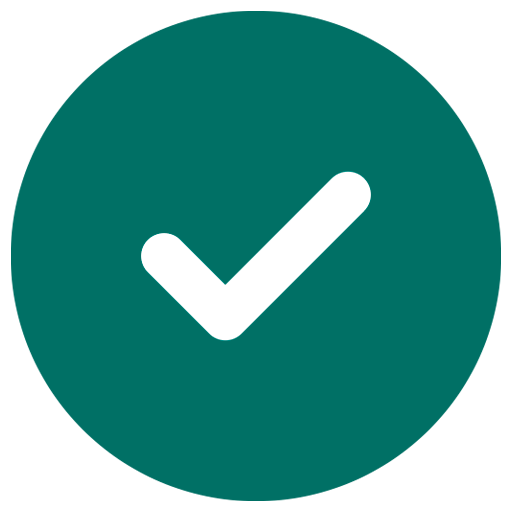Before diving in, know that finding the right role is as much about understanding yourself as it is about exploring opportunities. You’ll need moments of quiet reflection, honest conversations with professionals, savvy use of technology, partnerships with people who can advocate for you, and solid preparation to bring it all together. Ready? Let’s get started.
1. Start with Honest Self-Reflection
Finding a role that truly fits means first getting clear on who you are—your values, strengths, and the work that energizes you.
- Assess Your Skills and Interests. Grab a sheet of paper and jot down what you love doing versus what drains you. Forbes recommends leaning into skills-based assessments to adapt your job search to what you genuinely enjoy and excel at, rather than chasing titles for status alone.
- Identify Your Non-Negotiables. Beyond salary, what matters? Work-life balance, mission alignment, growth potential? Listing your must-haves helps you immediately rule out roles that won’t fit your life stage.
- Use Formal Tools, If Helpful. Personality inventories (like the Myers-Briggs or StrengthsFinder) can offer language to describe what makes you tick—just remember these are starting points, not destiny statements.
By knowing your own compass, you’ll stop wasting time on roles that look good on paper but feel off once you dig into the day-to-day.
2. Leverage Networking and Informational Interviews
You might cringe at the word “networking,” but real networking is simply chatting with people about what they do—and what they know.
- Cast a Wide Net of Connections. Research shows that about 70% of job seekers who work with career coaching programs land roles through networking—often via second- or third-degree contacts, not only close friends.
- Practice the “Informational Interview.” Think of these as casual coffee visits, not formal interviews. Harvard Business Review outlines how asking thoughtful questions (e.g., “What keeps you excited about this field?”) can give you an insider’s view while letting you subtly showcase your curiosity and fit.
- Embrace the “Weak Tie.” A Time study found that connecting with acquaintances—people you barely know—can actually open doors more effectively than chatting only with close friends.
Every person you talk to is a window into a company’s culture, unadvertised openings, and realistic daily life in the role you’re eyeing.
3. Use Online Platforms Strategically
In 2025, job boards and professional networks still matter—but only if you use them smartly.
- Targeted Job Boards. Instead of blasting your resume everywhere, focus on platforms that specialize in your field. TechRadar’s latest roundup crowns Clasjobs as best for insights, Glassdoor for company culture intel, and industry-specific boards for niche roles.
- Set Up Tailored Alerts. Spend an hour customizing search criteria—keywords, locations, remote options—so new postings hit your inbox instantly, letting you pounce before the flood of applicants arrives.
- Optimize Your Profile. Make recruiters notice you by crafting a clear headline, concise summary, and detailed experience bullets. Applicant Tracking Systems (ATS) often scan profiles much like resumes, so mirroring keywords from target job descriptions boosts visibility.
- Engage with Content. Don’t just lurk. Comment thoughtfully on industry articles, share your own mini-analyses, and congratulate connections on their milestones. A proactive presence can lead hiring managers to come to you.
By honing your approach, you’ll avoid the “black hole” feeling when applications vanish into the void.
4. Partner with Recruiters and Career Coaches
You don’t have to go it alone. Trusted professionals can amplify your search in ways you might not manage solo.
Recruiters
- Access the Hidden Market. Recruiters often hear about openings before they go public. LHH highlights that a recruiter’s network can grant you entry to roles you’d never find on job boards.
- Process Guidance. Good recruiters prep you on what hiring managers want to hear, streamline negotiations, and provide feedback that keeps improving your candidacy.
- Time Savings. Rather than filling out endless online forms, you fill out one with your recruiter, and they pitch you to multiple clients—a true force multiplier.
Career Coaches
- Personalized Roadmapping. Forbes points out that coaches help you uncover passions you hadn’t considered, align your goals with realistic steps, and hold you accountable to action plans.
- Interview Simulation. Many coaches run mock interviews, giving you live feedback on everything from body language to storytelling—so by the real thing, you’re calm, confident, and compelling.
- Confidence Boost. Sometimes the hardest job search obstacle is self-doubt. A coach helps you translate achievements into narratives that show why you’re the missing piece of an employer’s puzzle.
Combining recruiter reach with a coach’s guidance can turbocharge your results—without feeling like you’re spinning plates on your own.
5. Hone Your Application and Interview Process
Even with great fits and solid advocates, your polished presentation seals the deal.
- Resume and Cover Letter Customization. Ditch the one-size-fits-all. Mirror each employer’s language by weaving in keywords from the job description, and frame your impact with clear metrics (e.g., “Increased sales by 25% in six months”).
- Interview Prep Checklist. According to Indeed, preparing in 11 structured steps—like researching the company’s mission, drafting answers for top questions, and planning relevant questions to ask—can make the difference between a meh impression and a memorable one.
- STAR Method for Stories. When answering behavioral questions (e.g., “Tell me about a time you overcame a challenge”), outline the Situation, Task, Action, and Result. It keeps you concise and leaves the interviewer with a clear narrative.
- Post-Interview Follow-Up. Within 24 hours, send a personalized thank-you note referencing specifics from your conversation. It shows genuine interest and reinforces why you’re an ideal match.
- Reflect and Iterate. After each interview, jot down what went well and what you’d tweak next time. Continuously refining your approach ensures you get sharper with every interaction.
Great preparation turns nerves into excitement, letting you showcase your best self when it counts.
Bringing It All Together
There’s no magic bullet or overnight guarantee, but these five strategies—self-reflection, networking, strategic platform use, professional partnerships, and rigorous preparation—form a toolkit you can adapt for any industry or experience level. The perfect job isn’t just about the highest salary; it’s where you feel challenged, valued, and aligned with the mission.
Treat your search like a project: set weekly goals (e.g., “I will conduct two informational interviews this week”), track progress, and celebrate small wins (like a thoughtful recruiter connection or a stellar mock interview). Over time, momentum builds, opportunities multiply, and you’ll find yourself fielding roles that feel like home.
Above all, stay curious, stay resilient, and keep listening—to mentors, to your own instincts, and to the signals from every conversation you have. The right fit is out there, and with these human-centered steps, it’s only a matter of time before you land the perfect position. Good luck!
In 2023, the job market has seen a rise in remote and hybrid work opportunities, making it essential to consider your preferred work environment during your self-reflection process. Additionally, the use of AI in recruitment has increased, so understanding how to optimize your resume and online profiles for AI-driven Applicant Tracking Systems can give you a competitive edge. Networking has also evolved with virtual events becoming more prevalent, allowing you to connect with professionals globally without geographical constraints. Furthermore, career coaches are increasingly offering digital workshops and webinars, providing more accessible guidance for job seekers.


 United States
United States Canada
Canada Mexico
Mexico Argentina
Argentina Brazil
Brazil Peru
Peru Japan
Japan South Korea
South Korea United Arab Emirates
United Arab Emirates France
France Germany
Germany Italy
Italy Portugal
Portugal Spain
Spain Sweden
Sweden Switzerland
Switzerland United Kingdom
United Kingdom Australia
Australia



